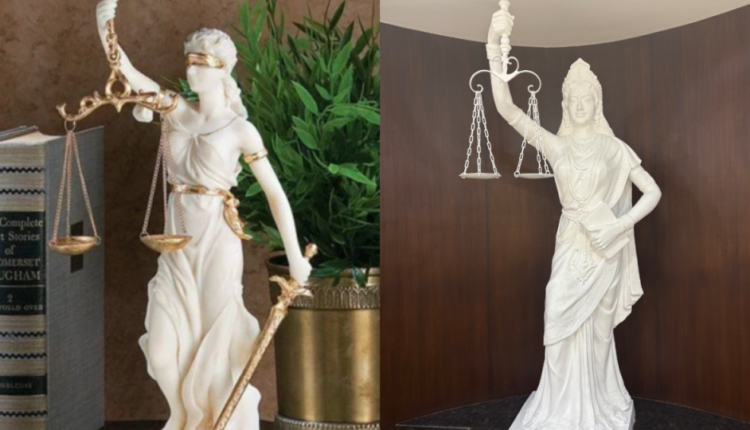New Delhi: In a symbolic move to modernize the judiciary and reflect the evolving justice system in India, the Supreme Court has unveiled a new statue of Lady Justice without the traditional blindfold. This significant change aims to convey that the law in India is not blind but sees everyone equally.
The new statue, commissioned at the direction of Chief Justice DY Chandrachud, replaces the blindfold with open eyes and the sword with the Indian Constitution. This transformation underscores the message that justice in India is dispensed according to constitutional laws rather than through punitive measures. The statue, now located in the Supreme Court’s Judges’ Library, also dons a saree, replacing the traditional Western robe, reflecting a deeper connection to Indian cultural identity.
Chief Justice Chandrachud emphasized that the removal of the blindfold symbolizes the court’s commitment to impartiality and transparency. “The law is not blind; it sees everyone equally,” he stated, highlighting the judiciary’s role in ensuring equal treatment for all citizens.
The scales of justice, a symbol of balance and fairness, remain in the statue’s right hand, signifying the court’s ongoing commitment to weighing the arguments of both sides impartially. This move is part of broader efforts to modernize the judiciary and move away from colonial-era symbols and laws, aligning more closely with contemporary legal frameworks like the Bharatiya Nyaya Sanhita.
The unveiling of the new Lady Justice statue marks a significant step in the Supreme Court’s journey towards a more inclusive and transparent justice system, reflecting the values of modern India.




Comments are closed, but trackbacks and pingbacks are open.